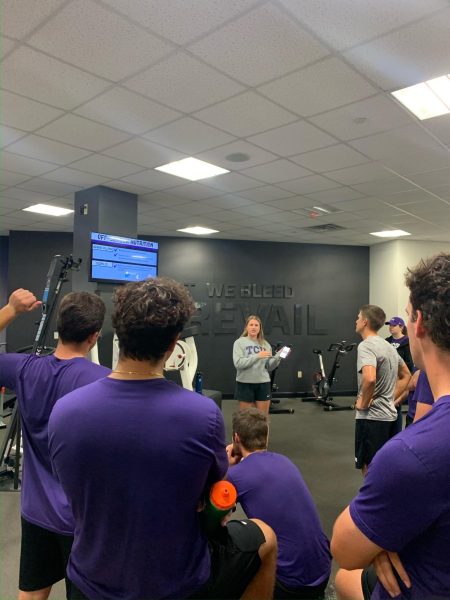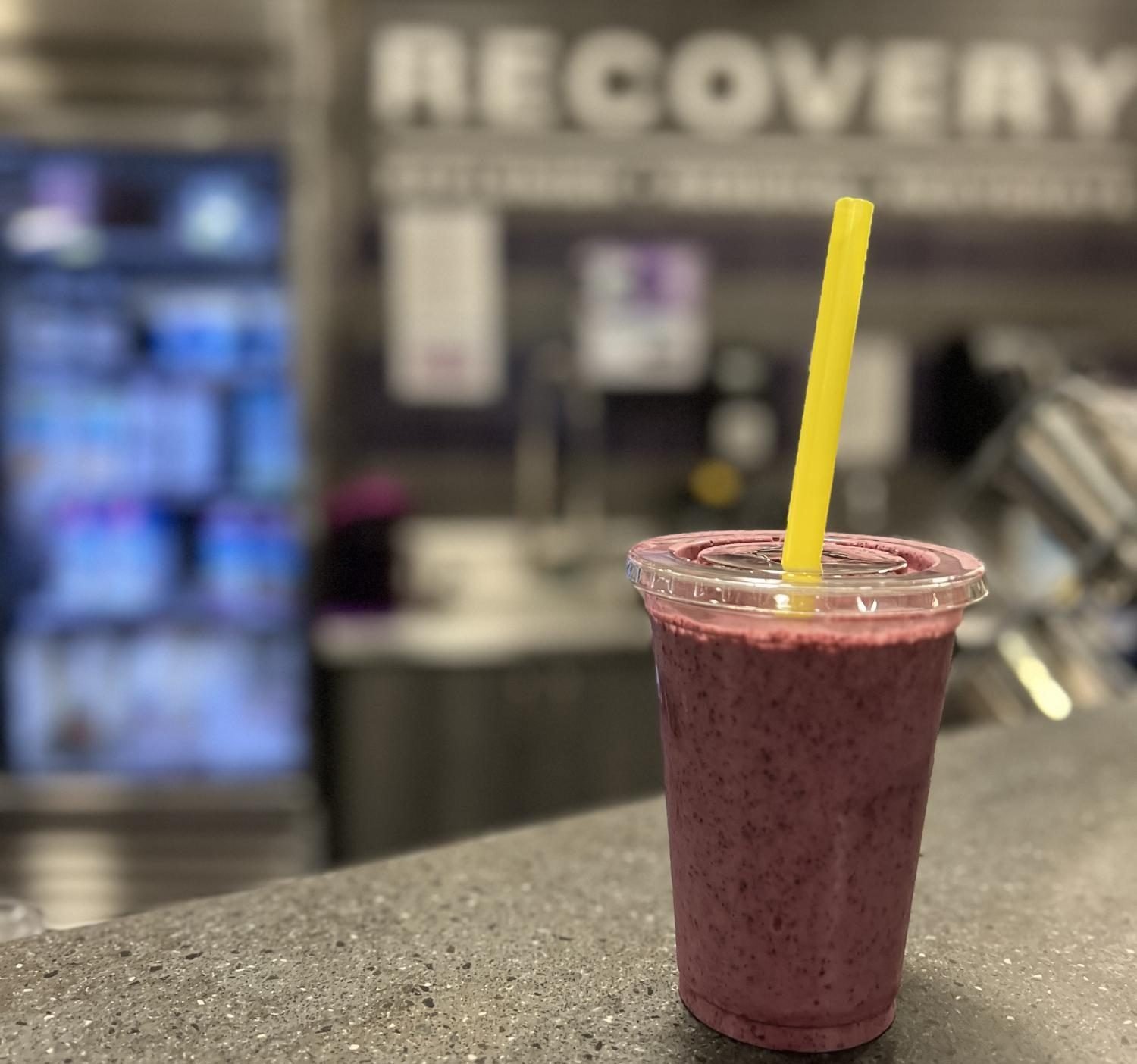Carbohydrate intake before a round of golf is essential to playing all 18 holes. Mix in protein and fat before the 6th for additional energy. Oh, and stay hydrated.
Claire Cimino, a nutritionist at TCU, thinks so.
Since June 2022, Cimino has worked as a graduate assistant dietitian with athletes in five different sports, including men’s and women’s golf, soccer, basketball, and equestrian.
After graduating from TCU in 2021, Cimino worked as a dietitian at the University of Tennessee before returning to TCU to earn her master’s degree.
She said she employs different nutritional strategies for each sport, depending on the intensity and duration of the sport. For example, a golfer may be on the course almost the entire day.
“I want to make sure I have snacks on the course throughout the game,” she said.
Because golf is a long-duration sport, nutrition during a round includes a combination of macronutrients, carbohydrates, fats, and proteins to maintain energy.
Before the tournament, Cimino meets with the players and gives them guidance on what to eat on the course. She writes her own recommendations on a card and attaches it to her bag. Players can refer to it during a round to make sure they don’t “hit the wall” and ensure optimal performance from the first hole to the last.

Cimino said maintaining mental clarity is also an important factor for golfers.
“Good nutrition allows for a clear mind and good decision-making,” she said. “That’s part of golf, and it’s different.”
After a breakfast rich in carbohydrates, fruit, and protein, such as eggs, toast, and bananas, she recommends cold, easy-to-digest foods such as applesauce early in the round. When you’re anxious, eating cold food can make your stomach feel heavier.
After making a few holes, she recommends mixing in protein and carbohydrates, such as beef jerky or pretzels. Finally, later in the round, she recommends incorporating healthy fats through things like trail mix.
Cimino emphasized the importance of hydration as another important part of nutrition for any sport.
“You can’t just chug a water bottle and call it a day,” she says. “You have to keep drinking and add electrolytes.”
Off the course, Cimino said sports nutrition helps athletes recover, reach performance goals and prevent injuries.
Considering athletes’ busy schedules, convenience is an important factor for nutritionists to consider. The Ed & Ray Schollmeyer Arena weight room features a refueling station with smoothies, acai bowls, and other snacks so athletes can lift, recover, and head straight to class.
She says golfers often come to her hoping to build muscle and add more power to their swings.
“So…based on how they feel performance-wise, they come to me and say, ‘Hey, I think I really need to gain muscle mass,'” she said.
Cimino meets with athletes individually to come up with a plan that fits their health and performance needs. After your consultation, you can use a body composition test to track your progress and see changes in muscle or fat mass over time.
Coach Allcorn said freshman golfer Andrew Petruzzelli is working with Cimino to get bigger and stronger as a hitter.
To increase muscle mass, Cimino recommends increasing carbohydrates from one-third of a plate to half a plate and increasing protein content.
For Petruzzelli, we focused on educating her about nutrition and TCU’s resources to help her reach her goals.
“Adding high-calorie foods, adding olive oil to vegetables, adding peanut butter to smoothies and hummus, adding dried fruit,” she says. “And we also focused on nutrition during the course, because if you haven’t eaten anything on the course, you’re almost in a state of fasting. That’s time taken away from you to achieve that goal.”
Petruzzelli said there are days when he doesn’t have an appetite, so he relies mostly on liquid calories like shakes and smoothies to gain weight.

Cimino said knowing each athlete’s motivations can be the key to achieving nutritional goals.
“You can educate and tell them all the benefits of doing X, Y, and Z,” she said. “But really, it’s up to them. Maybe it’s, ‘If I eat well, I’ll still be able to play golf in 10 years.'”
Proper nutrition is key to a golfer’s longevity, as the repetitive movements of the sport can put stress on joints, tendons, and ligaments. Cimino said fish oil, a source of omega-3 fatty acids, has anti-inflammatory properties that help maintain joints.
“When you have an injury to tendons or cartilage, such as in your shoulder, we provide collagen,” she said, referring to a type of protein that makes up cartilage and ligaments. She says, “You can get it from food sources, but taking supplements will ensure you’re getting enough.”
While certain foods and nutrients can help, Cimino says an overall healthy diet is more important than any single food or supplement.
“Getting enough sleep, plenty of fluids, and providing your body with enough nutrients, including fruits and vegetables, can really help minimize your risk of injury,” she said.

